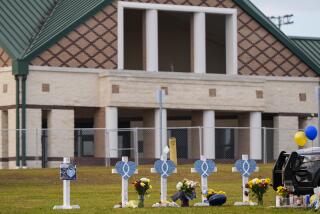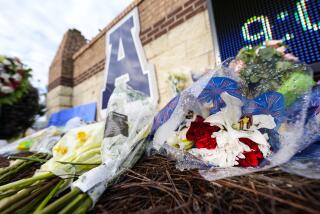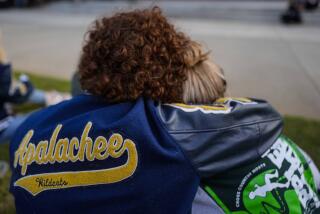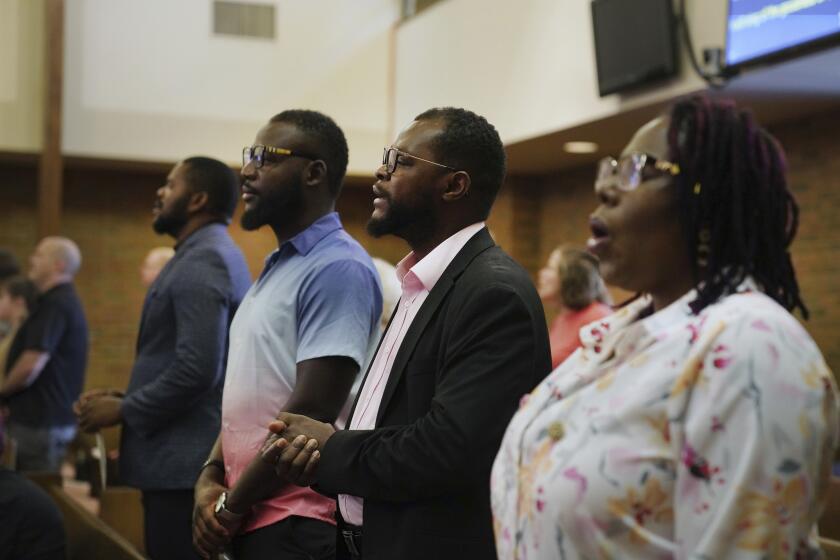Shooter was estranged from his father
NEWTOWN, CONN. — The troubled young man who shot and killed 26 people at an elementary school had not had contact with his father in a nearby town for the last two years, despite his father’s repeated efforts to repair the relationship, a family acquaintance said Tuesday as most students in the trauma-stricken town returned to school amid funeral processions.
The revelation that Adam Lanza, 20, had broken off contact with his father and his brother deepened questions into what was going on inside the Lanza household in the weeks and months before the shooting, whose genesis still remains largely unknown.
Increasingly it appears that few people other than Lanza’s mother, 52-year-old Nancy Lanza, had regular contact recently with him. State officials told reporters Tuesday that she was shot in the head with a .22-caliber rifle, most likely while she was asleep, before her son loaded four weapons into her car and drove it to Sandy Hook Elementary School.
Peter Lanza, an executive with GE Energy Financial Services, had initially seen his youngest son weekly after he separated from his wife in 2001, said the family acquaintance, who spoke on condition of anonymity because he did not want to be drawn publicly into the investigation.
But Adam Lanza began refusing to see his father and his brother, 24-year-old Ryan Lanza, at about the same time that his father began seeing another woman in the year after the Lanzas’ divorce became final in 2009, he said.
Peter Lanza eventually married the woman, Shelley Cudiner, an employee at the library at the University of Connecticut, and moved into her home in Stamford, Conn.
“Ryan and his dad both had not seen Adam since 2010,” the family acquaintance said. “It was around the time that his relationship with Shelley had become more serious. He reached out to his son, both directly and through his mother, but to no avail.”
Adam Lanza’s last known school enrollment was a series of classes at Western Connecticut State University, the last of which he completed in 2009, and there, too, few can recall him.
A student in his German class, Dot Stasny, said she remembered Lanza attending class regularly before dropping out toward the end, missing only two classes when he was sick.
His mother came in to pick up his assignments for that week, Stasny said in an email.
“I sat two seats away (with an empty chair between us) and noticed when he wasn’t there, simply because I talked to him fairly regularly and liked him; he was a nice kid,” the email said.
Sandeep Kapur, 41, a project manager and father of two who has lived two doors down from Nancy and Adam Lanza for the last three years, said he had seen them on the street but did not know them. He had not heard any arguments recently, no raised voices or loud noises, even Friday morning when police say Lanza shot his mother.
“The house is barely 200 feet away, and I never heard anything,” Kapur said. “If something was happening, it was obviously behind closed doors.”
The question of why Lanza targeted 20 young schoolchildren among his victims has traumatized this small, otherwise idyllic town, which was struggling Tuesday to return to a normal school schedule even as families were still burying their dead.
A school bus trundled through town toward an elementary school, its young passengers pressing their noses against the windows and peering at the unusual procession passing in the opposite direction: police cars with lights flashing, followed by a hearse carrying a small casket, and a limousine with a sobbing woman in the back seat.
All schools but Sandy Hook reopened, but with police guarding entrances, nervous parents wondering how they would make it through the day until their children came home, and funeral processions winding along streets marked with memorials. Sandy Hook’s students were to resume classes elsewhere after winter break.
There were 26 tiny Christmas trees for each of the 20 first-graders and six adults killed at Sandy Hook. On hillsides overlooking busy streets, people had planted 26 tiny flags, and 20 little white angels. Handmade signs paid tribute to the slain, including one on a white sheet that flapped near a major intersection and read: “There is no foot so tiny that it cannot leave an imprint on this world.”
Three more funerals, wakes or other services were held in Newtown for three of the children, and a service was planned in Stratford for one of the slain teachers, Victoria Soto.
As Newtown’s children headed to class, other children came from afar to pay their respects to the dead. They included 9-year-old Charlotte Rosiak and her 5-year-old sister, Katie, who woke their parents up early with an unusual request for how the Downey, Calif., family should spend its last day of vacation in New York City.
“They ... said ‘let’s go up there and write something and say a prayer,’” said their father, Richard Rosiak, who drove 90 minutes from their midtown Manhattan hotel.
“When you start talking about little caskets, it really just hits you,” said Rosiak, as he stood outside the St. Rose of Lima Catholic Church where 6-year-old James Mattioli was being eulogized.
Angela Bergen drove up from Elizabeth, N.J., with her 13-year-old son, Jack, and stood outside the church.
“I wanted my son to come here. I wanted him to understand the gravity of the situation,” she said, explaining her decision to have Jack skip classes for the day. As for herself, Bergen said she hoped to go inside the church and “just sit quietly in the back. I want to pray. I want to cry.”
But she would have to wait to get inside. No sooner had the service for James ended, and the long procession filed out of the parking lot, than another hearse headed down the hill toward the church, carrying the body of another 6-year-old, Jessica Adrienne Rekos.
--
kim.murphy@latimes.com
molly.hennessy-fiske@latimes.com
More to Read
Sign up for Essential California
The most important California stories and recommendations in your inbox every morning.
You may occasionally receive promotional content from the Los Angeles Times.











